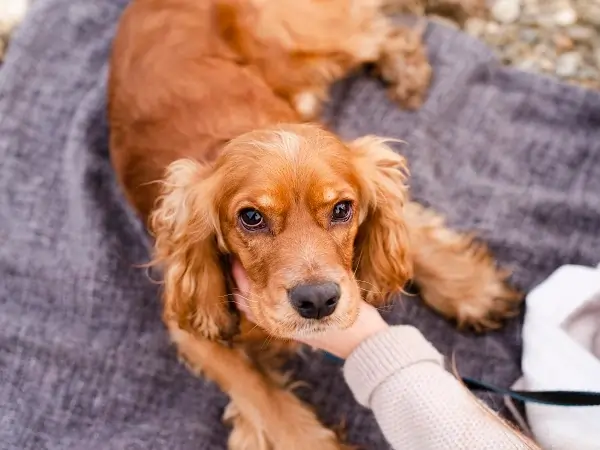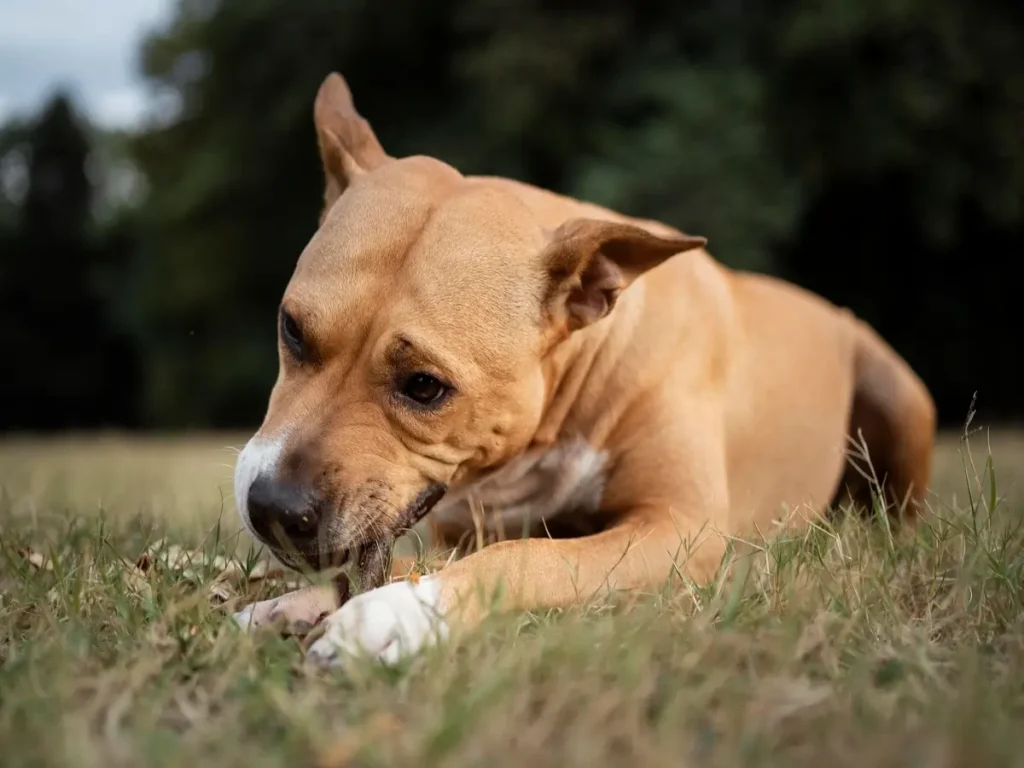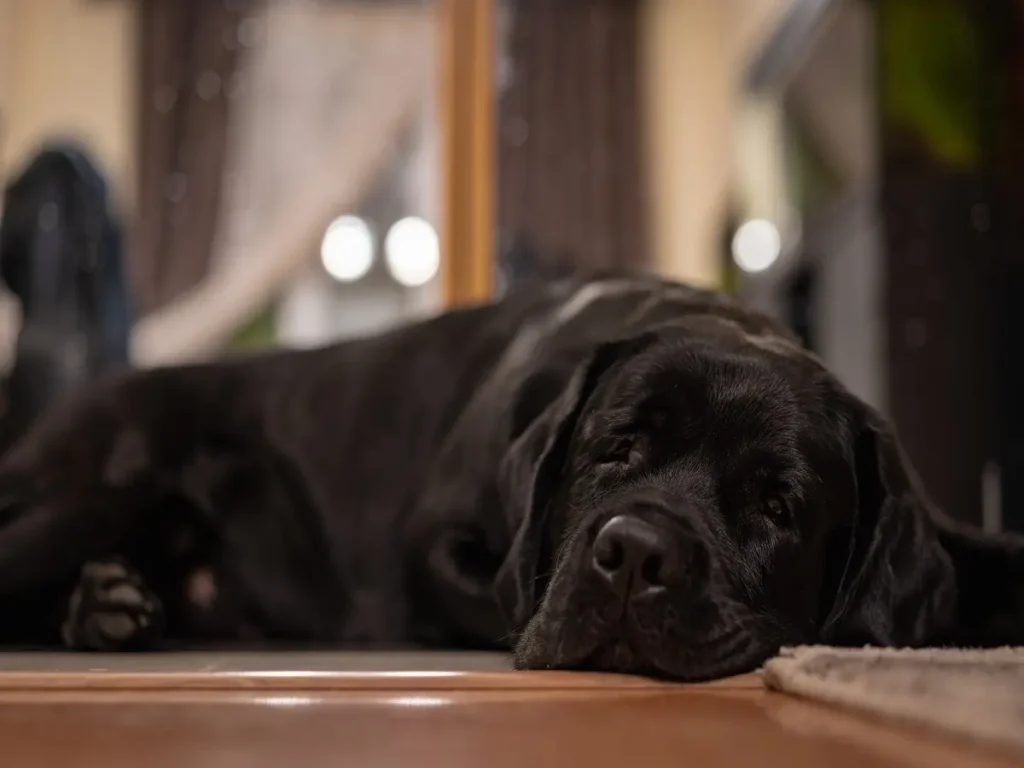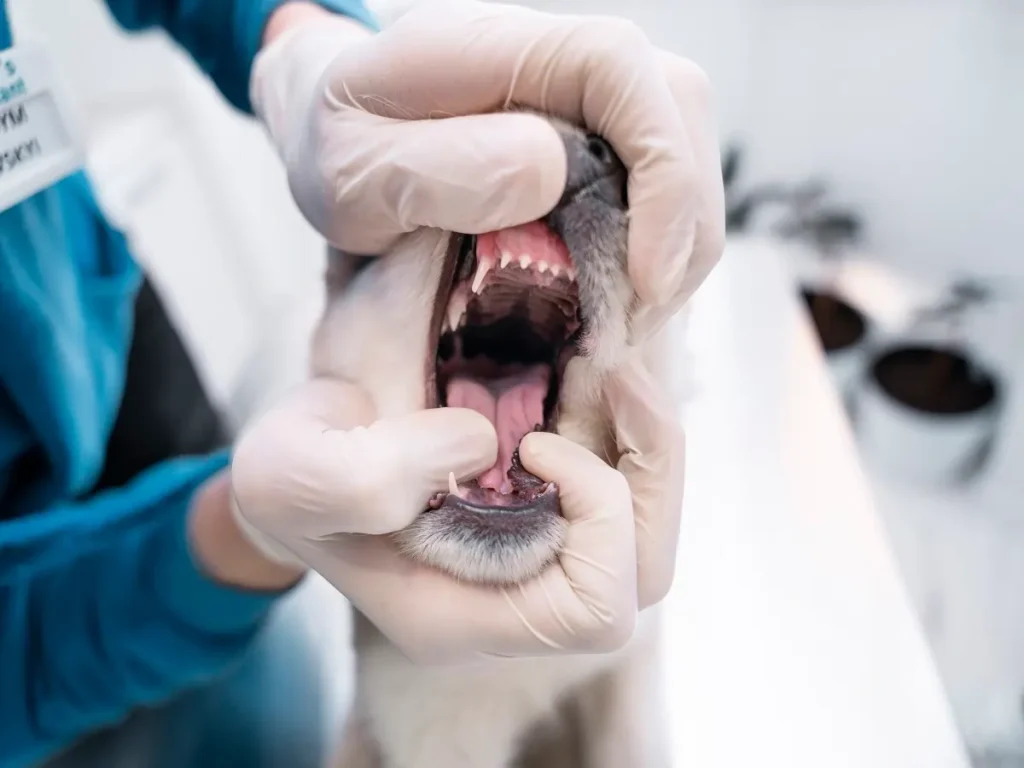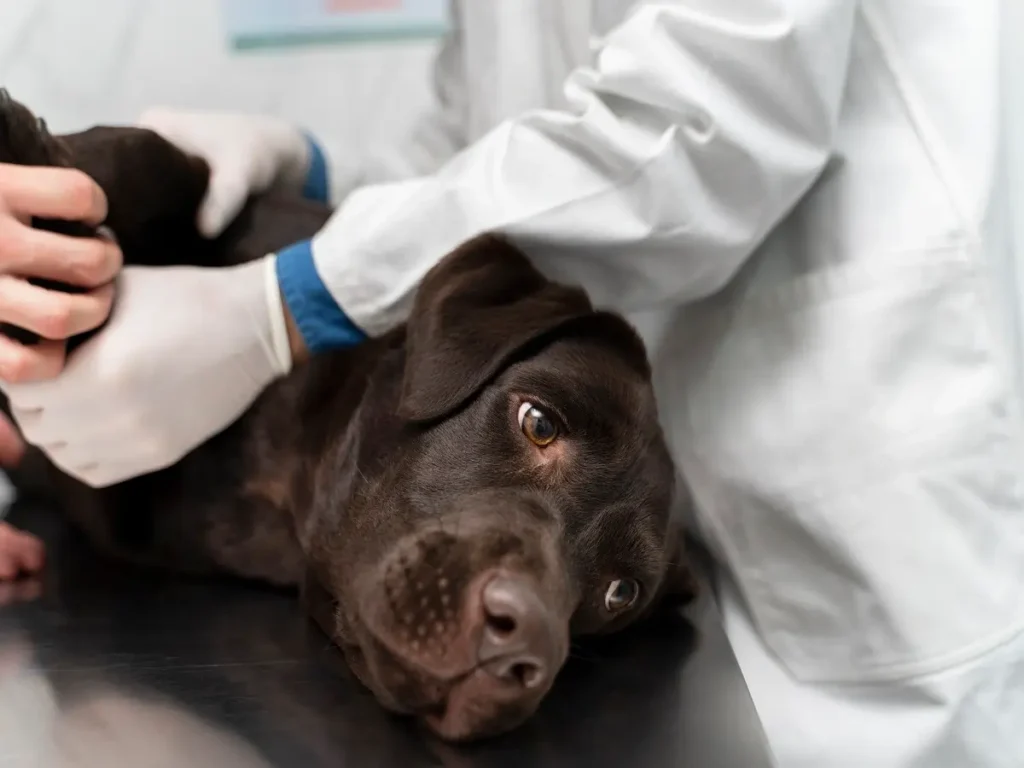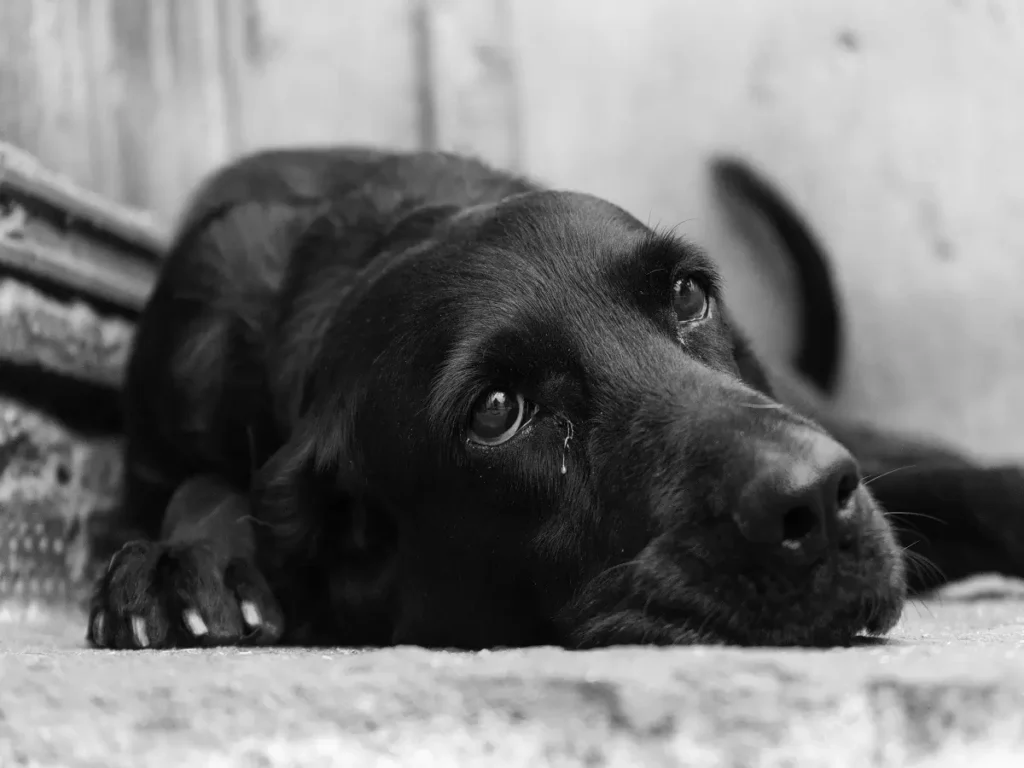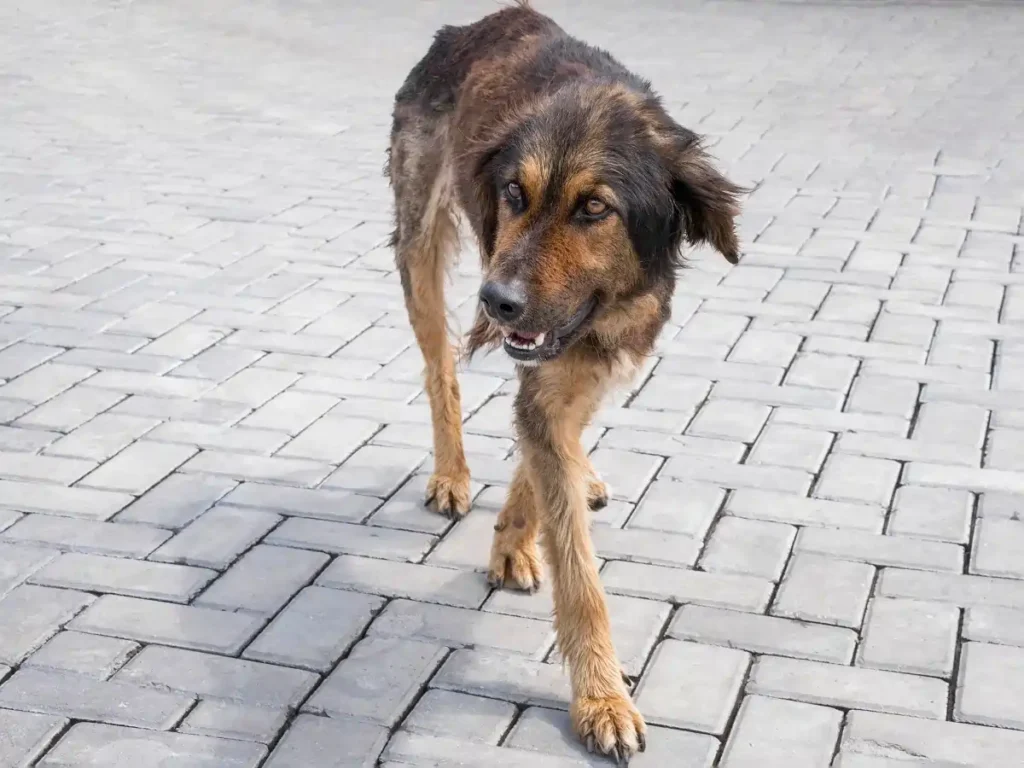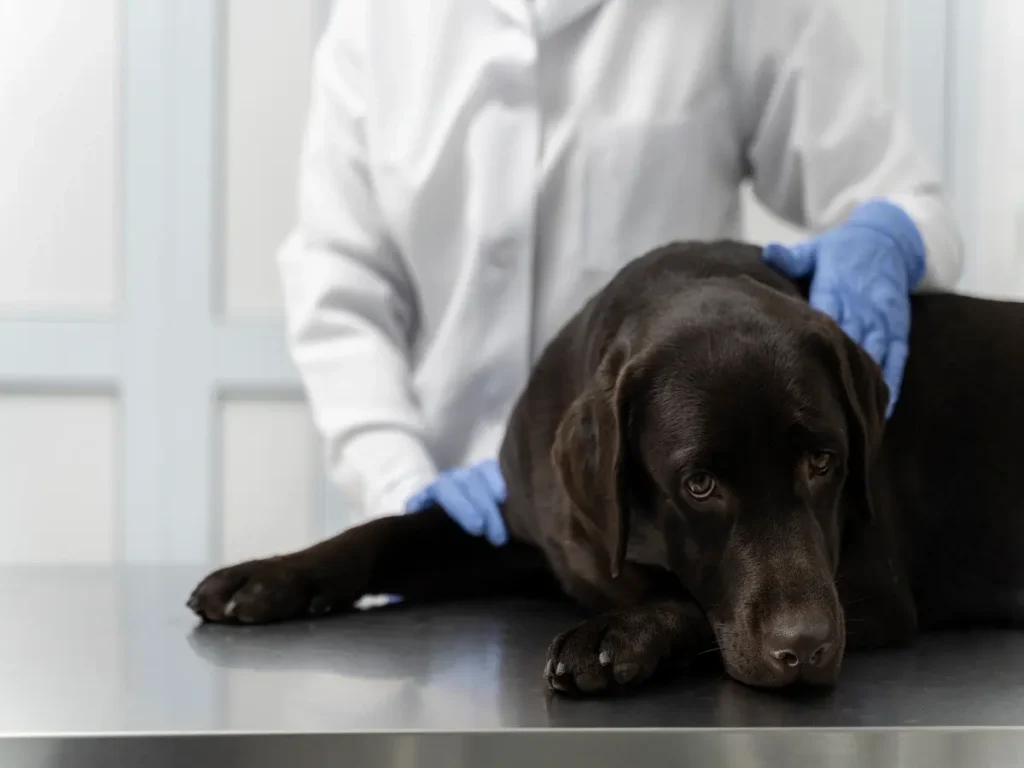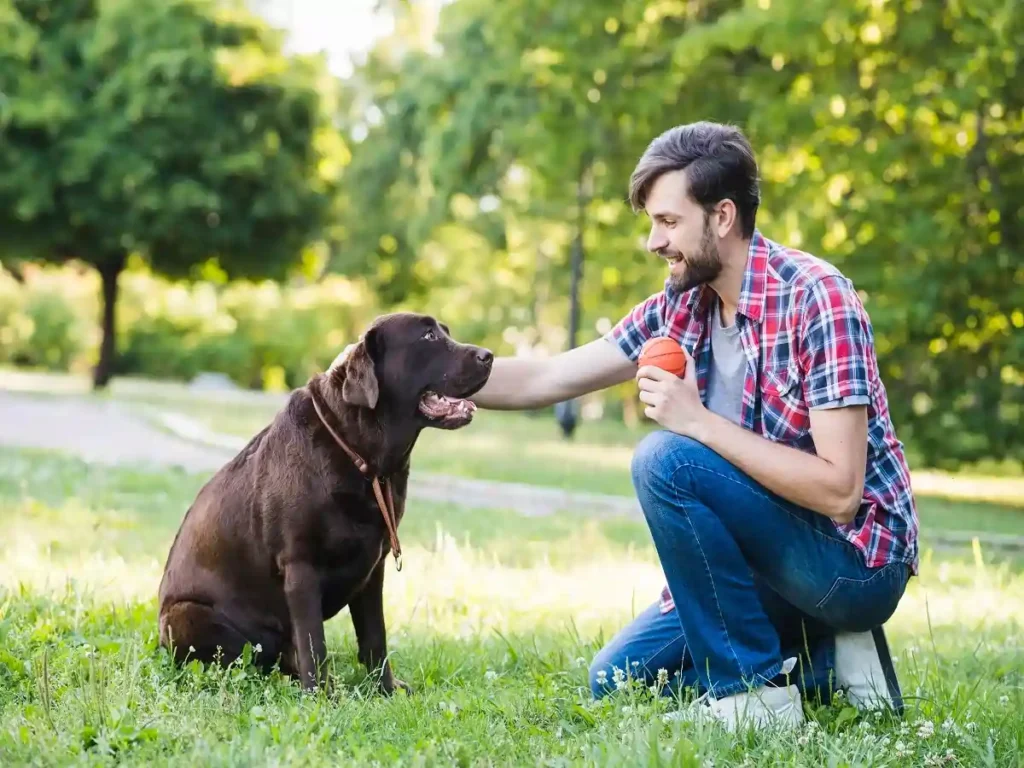Are you worried about your beloved dog losing weight? Then you are not alone. It can be really upsetting for any pet owner. While some changes in weight might be normal but if they keep losing weight, it could mean they are not well. In this guide, we will talk about why your dog might be losing weight. We will cover everything from what they are eating to possible health problems. Understanding why this is happening and how to help can keep your furry friend healthy and happy.
Table of Contents
Toggle5 Reasons of Dog’s Sudden Weight Loose
When your dog loses weight, it can be scary. But do not panic. Sometimes, it is just a natural thing. However, if it keeps happening, it could mean something’s wrong. Let’s figure out why your dog is getting lighter and what you can do about it.
1. Poor nutrition
First off, let’s talk about what your dog eats. Sometimes, changing their diet or not eating enough can cause weight loss. Maybe they are not getting enough food, or they do not like what they are eating.
When dogs do not get the right food, they can lose weight. Just like people, dogs need a good mix of nutrients to stay healthy and keep a good weight. If a dog does not get enough calories or nutrients, or if the food they eat is not good quality, they might become malnourished and lose weight. Bad ingredients, not having the right balance of food, stomach problems, and allergies can all cause a dog to lose weight because of bad nutrition. Also, accidentally not giving them enough food or giving them the wrong portion sizes can make them lose weight over time. To fix bad nutrition, it is important to give your dog good-quality food that has everything they need. Sometimes, it is helpful to get advice from a vet or a pet nutritionist to make sure your dog stays healthy and happy.
2. Parasites
Parasites are organisms that live in or on another organism, known as the host, and derive nutrients at the host’s expense. In the context of dogs, internal parasites are organisms that reside within the dog’s body, typically in the gastrointestinal tract. Common internal parasites in dogs include roundworms, hookworms, whip-worms, and tapeworms.
Parasites can make dogs lose weight by making them unhealthy and stopping them from getting enough nutrients. These tiny bugs, like roundworms, hookworms, whip-worms, and tapeworms, live inside a dog’s stomach or intestines. They eat the food the dog eats, which makes it hard for the dog to get the nutrients it needs. This can make the dog weak and sick. With symptoms like diarrhoea, vomiting, and stomach pain, which can make them lose even more weight.
Sometimes, these parasites can cause severe problems like anaemia and weakness, making it tough for the dog to keep a good weight. To help dogs stay healthy and avoid losing weight because of parasites. They need regular check-ups at the vet and treatments to get rid of the parasites.
3. Dental Issues
Dental problems can make dogs lose weight because it is hard for them to eat. Things like gum disease, rotten teeth, or broken teeth can hurt dogs when they eat. So, they might not want to eat at all or eat less than usual, which makes them lose weight over time.
Also, if a dog has trouble chewing because of pain or missing teeth, they might just swallow their food without chewing it properly. This can make it hard for them to digest food and get the nutrients they need, even if they eat enough.
If dental problems are not taken care of, they can cause other issues like infections or abscesses in the mouth, which can be painful and make the dog not want to eat even more.
In short, dental problems can lead to weight loss in dogs because they do not want to eat. They might have trouble chewing, and might be in pain when they eat. It is important to take good care of a dog’s teeth with regular cleanings and fixing any problems to keep them healthy and prevent them from losing weight.
4. Illness
When dogs get sick, they can lose weight because their bodies change. Here’s how illnesses can make dogs lose weight:
- Changes in Metabolism: Some illnesses can speed up or slow down a dog’s metabolism, which affects how their body uses energy and can lead to weight loss.
- Less Appetite: When dogs do not feel well, they might not want to eat as much. This could be because they feel sick, in pain, or their sense of smell or taste changes.
- Trouble Absorbing Nutrients: Certain illnesses can make it hard for dogs to absorb the good stuff from their food, even if they eat enough.
- Long-Term Health Issues: Chronic diseases like kidney or liver problems, cancer, or stomach issues can cause ongoing inflammation and other problems that make dogs lose weight.
- Pain and Discomfort: Dogs in pain might not want to eat or move around much, which can lead to weight loss. Conditions like arthritis or cancer can cause a lot of pain and make dogs not want to eat.
- Infections: Serious infections can make dogs feel weak, tired, and not hungry, which can cause weight loss.
- Brain and Nervous System Issues: Problems with the brain or nervous system can affect a dog’s appetite, how they swallow food, or how they move, all of which can make them lose weight.
If your dog is losing weight for no reason, it’s important to talk to a vet. They can figure out what’s wrong and help your dog get better so they don’t lose any more weight.
5. Stress or Anxiety
When dogs get stressed or anxious, they might lose weight for a few reasons. First, they might not feel like eating as much, so they do not get enough food and start losing weight over time. Also, stress can mess up their stomachs, making them feel sick and not able to absorb nutrients properly.
Plus, when they are stressed, they might move around a lot more, burning off calories and losing weight if they do not eat extra food to make up for it. Changes in their environment or routines can stress them out too, affecting their eating and overall health.
To help dogs who are losing weight because of stress. It is important to figure out what is causing the stress and give them a stable, supportive home. Vets or animal experts can help with this, giving advice on how to calm the dog down and make sure they are eating enough to stay healthy.
Signs and Symptoms of Weight Loss in Dogs
It is important to notice if your dog is losing weight because it can mean they are not healthy. Here are some things to look for:
- Visible Ribs and Spine: If you can see or feel your dog’s ribs and spine more than usual, it might mean they are losing weight.
- Less Fat Covering Bones: Normally, dogs should have a bit of fat covering their bones. If they are too skinny, you might see bones sticking out more.
- Changes in Eating: Pay attention to how much your dog eats. If they suddenly eat less or don’t want their food, it could be a sign of a problem.
- Feeling Tired: Losing weight can make dogs feel tired and weak. If your dog seems more tired than usual, it could be because of weight loss.
- Throwing Up or Diarrhoea: Dogs can lose weight if they have stomach problems like throwing up or diarrhoea. Look for changes in their poop too.
- Coat Doesn’t Look Good: If your dog’s fur looks dull or messy, it might mean they are not getting enough of the right food. Hair falling out more than usual can also be a sign of a problem.
- Drinking and Peeing More: Some sicknesses can make dogs drink more water and pee more often. If you notice this, it is important to talk to a vet.
- Changes in Behaviour: Weight loss can make dogs feel grumpy or sad. Watch for any changes in how your dog acts.
If you see any of these signs in your dog, talk to a vet as soon as you can. They can help figure out what is wrong and how to help your furry friend feel better.
Diagnostic Process for Identifying Weight Loss Causes in Dogs
When your dog is losing weight for no clear reason. It is important to find out why so they can get the right treatment. Here is what happens when your vet tries to figure it out:
- Check-up: First, the vet will give your dog a thorough check-up. They will feel their body, check their coat, eyes, ears, and teeth for any signs of sickness.
- Medical History: You will need to tell the vet about any changes in your dog’s diet, appetite, behaviour, and health. They will also ask about past illnesses and treatments.
- Blood and Urine Tests: The vet might take some blood and urine samples to check for any health problems. These tests can tell if your dog has infections, organ problems, or other issues.
- Poop Test: Your vet might ask for a stool sample to check for worms or other parasites that can make your dog lose weight.
- X-rays or Ultrasound: Sometimes, your dog might need X-rays or ultrasound scans to look inside their body for any problems with their organs.
- More Tests if Needed: Depending on what the vet finds, they might do more tests like biopsies or special scans to find out exactly what’s wrong.
- Checking Food: The vet might also ask about what your dog eats to see if they are getting the right nutrients.
Once the vet figures out what is making your dog lose weight. They will make a plan to help them feel better. It is important to catch these problems early so your dog can get better as soon as possible.
Tips for Supporting a Dog’s Recovery from Weight Loss
Helping your dog get better after losing weight means more than just finding out why they got sick. Here is how you can help them:
- Follow Veterinary Recommendations: Do what your vet says about treatment. They might suggest changing your dog’s food, giving them medicine, or taking care of their teeth.
- Monitor Food and Water Intake: Make sure your dog eats and drinks enough. If they do not feel like eating, try giving them smaller meals or warm food.
- Provide Nutritious Food: Feed your dog healthy food that is right for them. Your vet can recommend the best food to help them gain weight and stay healthy.
- Give Medicines Properly: If the vet gives your dog medicine, make sure they take it as told. Follow the instructions to make sure the medicine works.
- Ensure Comfort and Rest: Make a cozy spot for your dog to rest. Give them a soft bed in a quiet, warm place where they won’t be bothered.
- Keep Them Moving: Let your dog rest, but also try gentle exercises like short walks. It helps their muscles and keeps them feeling good.
- Monitor Progress and Adjust Care as Needed: Pay attention to how your dog’s doing. Notice if they gain weight, eat more, or have more energy. Go to the vet regularly to make sure they are getting better.
- Provide Emotional Support: Spend time with your dog, brush their fur gently, and cheer them up. Being with you helps them feel better and less stressed.
- Stay Patient: Getting better takes time, so do not worry if it is slow. Keep giving your dog the care they need until they are all better.
By doing these things and giving your dog lots of love and care, you can help them feel better and stronger again. If you are not sure about something, ask your vet for help. They are there to make sure your furry friend gets better.
Final Words
In conclusion, dogs can lose weight for lots of reasons. It is important to figure out why and help them get better. One reason might be they are not eating enough or getting the right nutrients. Bugs like worms can also steal their food and make them sick. If their teeth hurt, they might not want to eat. Even health problems like diabetes or stress can mess with their appetite. If we notice our furry friends losing weight, we need to help them out. This means giving them good food, getting rid of bugs, taking care of their teeth, and seeing the vet if they are sick. Regular check-ups, good food plans, and a happy home are key to keeping our dogs healthy and at the right weight.

